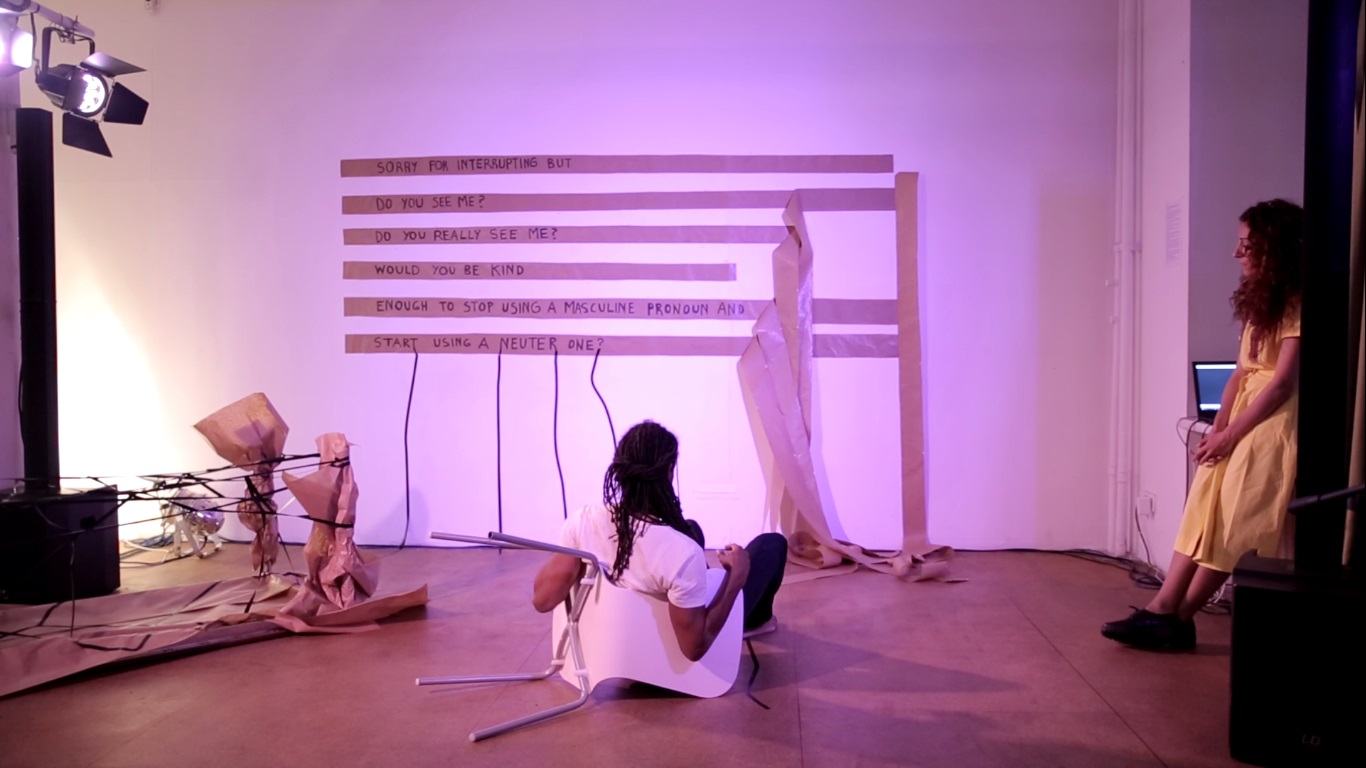
What does an anchor institution do?
The simple answer is: we are a point of contact for all of the city’s literary creators. Our infrastructure supports authors, translators, literary magazines, independent small publishers, and organizers of the independent literary scene. We want to be a place for many– to absorb the diverse impulses from the literary scene and to give them a space to flourish.
Specifically, we offer:
- A venue for readings, performances, panel discussions, magazine releases, and salon evenings. Lettrétage is available free of charge for all imaginable evening events that emerge from the independent literary scene. We boost your events with our established PR resources and provide the venue’s services. Find out more here.
- A place to work. Lettrétage isn’t only open in the evenings; we also offer our space during the day. Our rooms can be used for literary magazine editorial sessions, performance rehearsals, translation workshops, or team meetings. Find out more here.
- Free advice. As part of the WiSU project, we regularly offer free consultation days for the self-employed of the independent literary scene. Authors, editors, translators, and literary organizers can ask experienced players about all matters relating to the ‘big picture’ in the field. Here you will find the current dates.
- Literature calendar and ticketing. We want to strengthen the independent scene by offering organizers simple options to keep track of their appointments and reservations. We cooperate with the platform Literaturport.de to offer platforms that simplify logistics, including the ‘Berlin Literature Calendar’ and a ticketing system. Find out more here.
- Other possibilities of networking. To interact with activists of the local and international literary scene, we organize events again and again. We host numerous international projects, including the “Branchentreff Literatur” (Annual Branch Meeting of Literature) and meetings of the “Netzwerk freie Literaturszene Berlin” (Network of the Free Literature Scene in Berlin), in order to build a community of literary activists.
